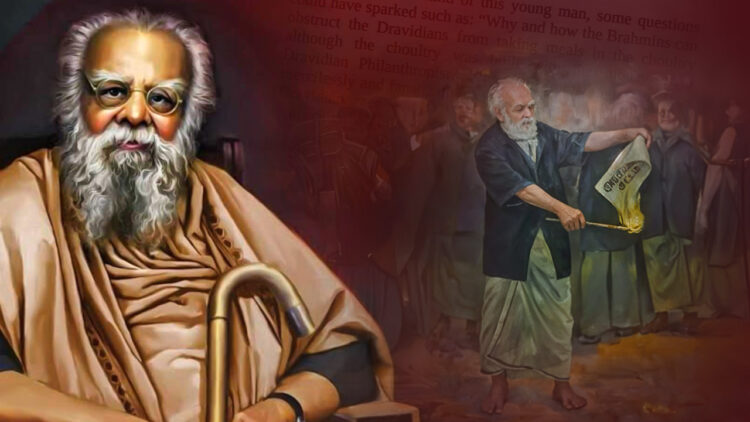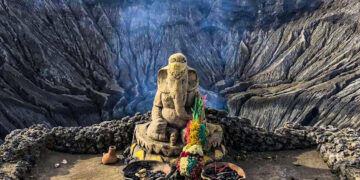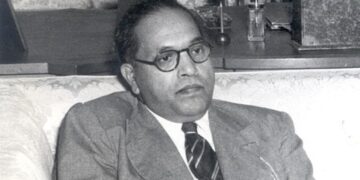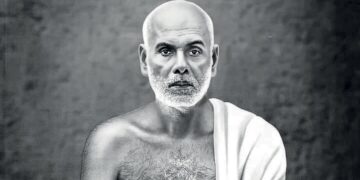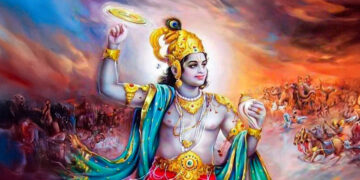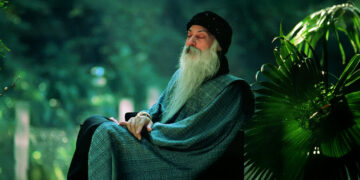The Dravidian Movement, led by E.V. Ramasamy, popularly known as Periyar, is often celebrated as a force for social reform in South India. However, a closer look at his actions and ideologies reveals a troubling legacy that threatens the unity of India and insults Sanatan Dharma. Slogans like “Hum Chaiye Azaadi, Manuvaad se Azaadi, Brahmanvaad se Azaadi”—rooted in extreme leftist ideologies—emerged from this movement, promoting division and hatred. This article aims to expose the true nature of Periyar’s legacy and urges South Indian Hindus to scrutinize his actions through a critical lens.
Periyar’s Anti-Hindu Agenda
Periyar’s followers often portray him as a champion of social justice, but his actions tell a different story. His movement was marked by hostility toward Sanatan Dharma, including death threats against Brahmins, burning the Indian Constitution and national flag, and desecrating idols of Lord Ganesha. These acts were not mere protests but deliberate attempts to undermine India’s cultural and spiritual heritage.
For instance, Periyar’s disdain for Hindu traditions was evident during his visit to Varanasi, the sacred land of Lord Shiva. There, he questioned why priests or sanyasis receive prasad before others, ignoring the dedication of Brahmins who perform rituals, often fasting without food or water. In an act of deceit, Periyar disguised himself as a Brahmin to claim prasad first, but his plan failed. He later misrepresented this incident as an insult to the Dravidian community, a baseless claim that fueled division.
In Hindu temples, prasad is traditionally offered first to those who dedicate their lives to spiritual service, such as priests, before being distributed to all devotees. This practice reflects respect for their commitment, not discrimination. Periyar’s attempt to twist this tradition into a narrative of oppression highlights his agenda to vilify Sanatan Dharma.
A Threat to National Unity
Periyar’s actions extended beyond religious criticism to outright anti-Indian sentiments. He burned the Indian Constitution and national flag, claiming they symbolized North Indian dominance over South Indians. Such acts were not only disrespectful but also dangerous, as they aimed to fracture India’s unity. Periyar’s vision of a separate Dravidian nation, excluding Tamil Nadu from India, mirrored the divisive tactics of Mohammad Ali Jinnah, who sought to disrupt Hindu-Muslim unity.
His disdain for India’s sovereignty was further evident in his view of Independence Day and Republic Day as “curses” for South Indians. How can someone who mourned India’s independence be hailed as a social reformer? Periyar’s ideology aligned with what many call “Break India Forces,” which sought to divide the nation along regional and cultural lines.
Desecration of Hindu Deities
One of Periyar’s most shocking acts was the destruction of Lord Ganesha idols in 1952, claiming that idols lack divine power. This was not just an attack on religious sentiments but a criminal act under the Indian Constitution, which protects religious beliefs. In 1954, he attempted to burn images of Lord Rama, opposing the Ramayana, but was arrested and imprisoned. These actions reflect a deep-seated hostility toward Sanatan Dharma, far from the social reform he is credited with.
The DMK’s Anti-Hindu Legacy
Periyar’s influence persists in parties like the Dravida Munnetra Kazhagam (DMK). In 1968, then-Chief Minister CN Annadurai agreed to Periyar’s demand to remove Hindu deities from government offices, signaling an agenda to erase Sanatan Dharma from Tamil Nadu’s public sphere. This aligns with the broader narrative of anti-Hindu forces in South India, which continue to mislead devotees under the guise of reform.
The Misrepresentation of Manusmriti
Periyar’s followers often criticize the Manusmriti, a sacred Hindu text authored by the ancient sage Manu, as a tool that benefits Brahmins exclusively. This narrative oversimplifies a complex text and ignores its historical context as a guide for ancient Hindu society. By framing Manusmriti as a symbol of oppression, Periyar fueled anti-Brahmin sentiment and deepened divisions between North and South Indians.
A Call to South Indian Hindus
The book Collected Works of Periyar lays bare his true character and ideology. It serves as a wake-up call for South Indian Hindus who may have been misled by the false narratives of leaders like MK Stalin and other DMK figures. True intellectuals seek truth through research, not blind reverence for figures like Periyar, whose actions reveal an anti-Hindu agenda. We urge all Sanatanis to examine Periyar’s legacy critically. His movement was not about reform but about division, hatred, and the erosion of India’s cultural and spiritual fabric. Let us unite to preserve our heritage and expose the reality of anti-Hindu forces in India.

